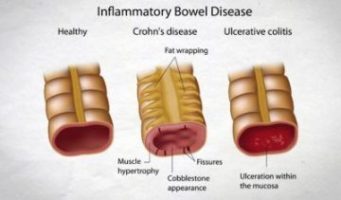- Home
- Editorial
- News
- Practice Guidelines
- Anesthesiology Guidelines
- Cancer Guidelines
- Cardiac Sciences Guidelines
- Critical Care Guidelines
- Dentistry Guidelines
- Dermatology Guidelines
- Diabetes and Endo Guidelines
- Diagnostics Guidelines
- ENT Guidelines
- Featured Practice Guidelines
- Gastroenterology Guidelines
- Geriatrics Guidelines
- Medicine Guidelines
- Nephrology Guidelines
- Neurosciences Guidelines
- Obs and Gynae Guidelines
- Ophthalmology Guidelines
- Orthopaedics Guidelines
- Paediatrics Guidelines
- Psychiatry Guidelines
- Pulmonology Guidelines
- Radiology Guidelines
- Surgery Guidelines
- Urology Guidelines
Natural Nitrous Oxide production may boost healing in IBD

It has been a real challenge to treat inflammatory diseases of the bowel: Genes, gut microbes and disrupted immune function all contribute. Weizmann Institute of Science researchers are proposing a way around this complexity which is by naturally boosting production of Nitrous Oxide may be a natural healing mechanism for IBD. The study has been published in Cell Reports. This may be a way to trigger a natural defense mechanism that prompts the body itself to alleviate intestinal inflammation.
The study, led by veterinarian Dr. Noa Stettner, who is also a Ph.D. student in the lab of Dr. Ayelet Erez in the Biological Regulation Department, focused on nitric oxide (NO), a signaling molecule involved in a variety of biological processes. Scientists have long tried to determine what role NO plays in such inflammatory conditions as Crohn's disease and ulcerative colitis, but NO alleviated intestinal inflammation in some circumstances and promoted it in others.
The Weizmann researchers hypothesized that the paradoxical findings might arise because NO has different effects in different types of cell in the gut. They genetically engineered mice to block NO production exclusively in certain types of cells: either in the cells making up the inner lining of the gut or in immune cells. They found that the symptoms of a colitis-like disease got worse when NO synthesis was blocked in the gut cells; but they improved when NO was blocked in immune cells, particularly in large cells called macrophages.
The scientists concluded if inflammatory bowel diseases are treated by raising NO levels, it may cause side effects in cells outside the gut lining. Stettner, with the help of collaborators at the Weizmann Institute and elsewhere, set out to develop a method for boosting NO production only in the gut lining cells.
They relied on Erez's earlier finding that an enzyme called ASL that is responsible for the making of the amino acid arginine, the raw material from which the body manufactures NO. The researchers turned to two natural substances: fisetin, which is present in apples, persimmons and strawberries elevated ASL levels, and citrulline, found in watermelon, beets, and spinach increased ASL activity.
The two supplements, when given together, promoted the manufacture of NO exclusively in cells of the inner lining of the gut. Most importantly, in mice, the symptoms of an inflammatory disease in the gut improved significantly.
The treatment also had a beneficial effect on colon cancer, which is known to be aggravated by gut inflammation. In mice with tumors of the colon, intestinal inflammation subsided and their tumors decreased in number and size after receiving the supplements.
If this approach is shown to raise NO levels in the inner lining cells in humans, it may help treat inflammatory bowel diseases? and potentially even colon cancer. The fact that it makes use of over-the-counter nutritional supplements should facilitate its implementation.
For more details click on the link: DOI:10.1016/j.celrep.2018.04.053

Disclaimer: This site is primarily intended for healthcare professionals. Any content/information on this website does not replace the advice of medical and/or health professionals and should not be construed as medical/diagnostic advice/endorsement or prescription. Use of this site is subject to our terms of use, privacy policy, advertisement policy. © 2020 Minerva Medical Treatment Pvt Ltd